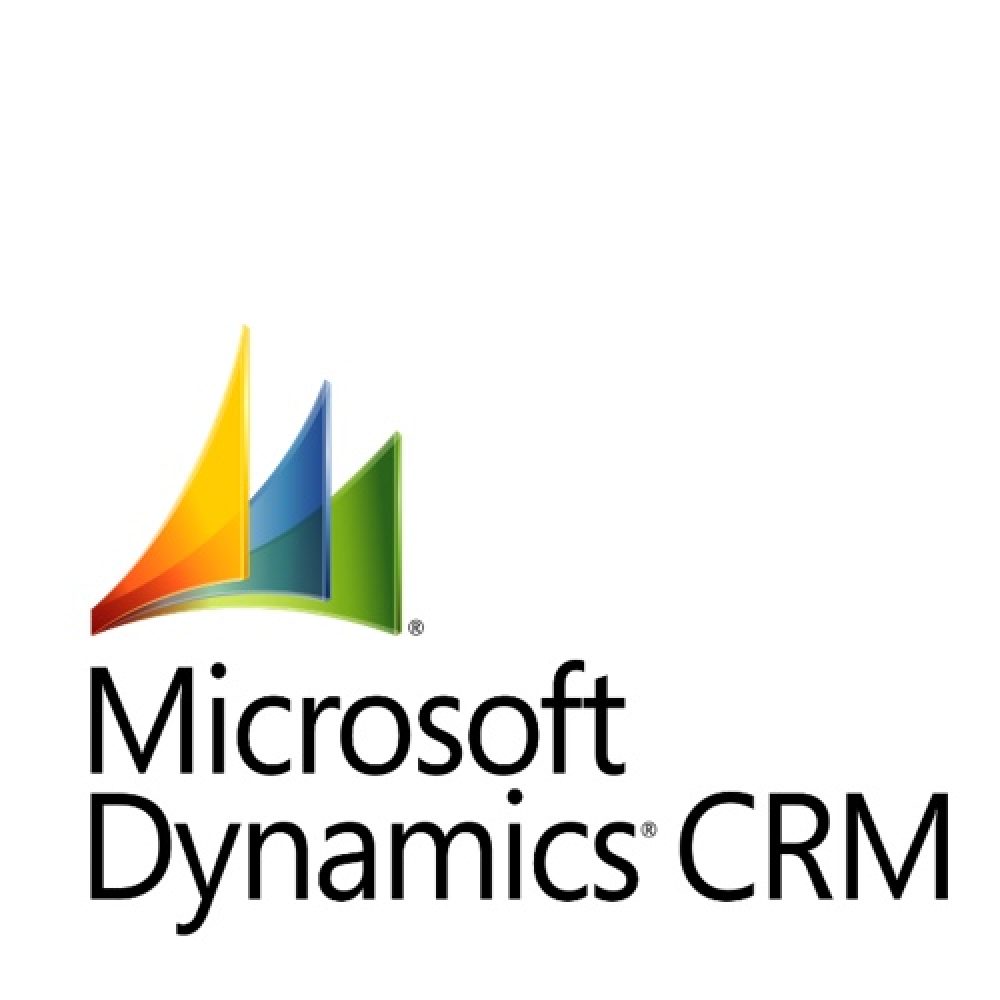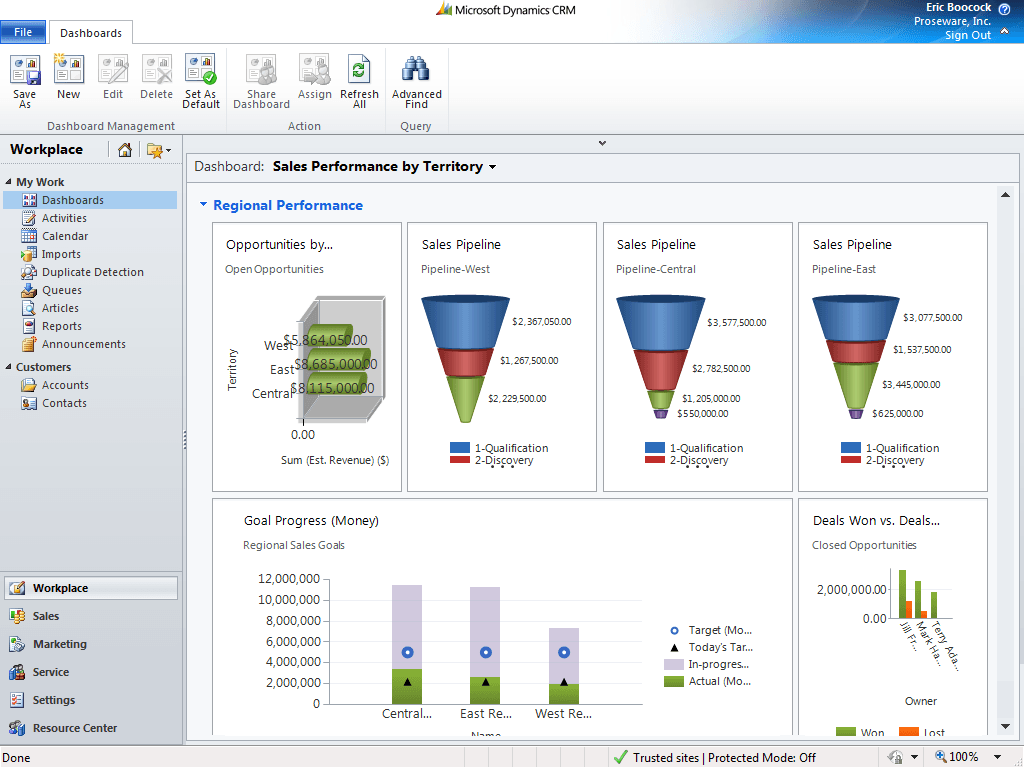Exploring the Power of Microsoft Dynamics CRM
Embark on a journey into the realm of Microsoft Dynamics CRM, a dynamic tool revolutionizing the way businesses manage relationships and drive growth. From its key features to the benefits it offers, this software solution is reshaping the business landscape.
Introduction to Microsoft Dynamics CRM

Microsoft Dynamics CRM is a customer relationship management software developed by Microsoft that helps businesses manage customer relationships, track sales leads, marketing, and customer service interactions in one centralized platform.
Key Features of Microsoft Dynamics CRM:
- Lead Management: Capture and track leads from various sources to convert them into opportunities.
- Sales Automation: Streamline sales processes, manage sales pipelines, and track performance.
- Marketing Automation: Create and manage marketing campaigns, track their effectiveness, and generate leads.
- Customer Service: Provide efficient customer service with case management, knowledge base, and self-service options.
- Reporting and Analytics: Generate reports, analyze data, and gain insights to make informed business decisions.
Benefits of using Microsoft Dynamics CRM for businesses:
- Improved Customer Relationships: Centralized customer data helps in understanding customer needs and preferences.
- Increased Sales Productivity: Automation of sales processes and access to real-time data boosts sales team efficiency.
- Enhanced Marketing Campaigns: Targeted marketing campaigns based on customer data lead to higher conversion rates.
- Better Customer Service: Quick access to customer information enables personalized and efficient customer service.
- Scalability and Customization: Easily scalable to accommodate business growth and customizable to meet specific business requirements.
Implementation of Microsoft Dynamics CRM
Implementing Microsoft Dynamics CRM in a business involves a series of steps to ensure a successful deployment and utilization of the platform. From initial planning to customization and training, each phase plays a crucial role in maximizing the benefits of CRM software.
Different Deployment Options
When considering Microsoft Dynamics CRM, businesses have various deployment options to choose from based on their specific needs and preferences. These options include cloud-based, on-premises, and hybrid deployments.
- Cloud-based Deployment:This option involves hosting the CRM software on Microsoft's cloud platform, Azure. It offers scalability, flexibility, and reduced infrastructure costs.
- On-Premises Deployment:With this option, the CRM software is installed and managed on the company's own servers. It provides greater control over data and customization but requires more IT resources.
- Hybrid Deployment:Businesses can choose a combination of cloud-based and on-premises deployments to meet specific requirements. For instance, sensitive data can be stored on-premises while leveraging the scalability of the cloud for other functions.
Commonly Implemented Industries
Microsoft Dynamics CRM is commonly implemented across various industries to streamline customer relationship management processes and enhance customer interactions. Some industries where Microsoft Dynamics CRM is commonly used include:
- Financial Services: Banks, insurance companies, and financial institutions use CRM to manage client relationships, track leads, and improve customer service.
- Retail: Retailers utilize CRM to analyze customer data, personalize marketing campaigns, and enhance customer loyalty programs.
- Healthcare: Healthcare providers leverage CRM to improve patient engagement, manage appointments, and personalize treatment plans.
- Manufacturing: Manufacturers use CRM to streamline sales processes, manage supply chains, and enhance customer support services.
Customization and Configuration in Microsoft Dynamics CRM
Customization plays a crucial role in adapting Microsoft Dynamics CRM to meet the specific needs and requirements of a business. By customizing the system, organizations can streamline processes, enhance user experience, and improve overall efficiency.
Creating and Managing Custom Entities
Custom entities allow users to store and manage data that is unique to their organization. To create custom entities in Microsoft Dynamics CRM, users can utilize the customization tools available within the system. These tools enable users to define the entity's structure, attributes, relationships, and forms, tailoring it to suit their business processes.
- Custom entities can be created through the customization area in Dynamics CRM, where users can define the entity's metadata, such as display name, plural name, and description.
- Attributes can be added to custom entities to capture specific data points relevant to the organization's operations. Users can define attribute types, format, and properties to ensure data integrity and accuracy.
- Relationships between custom entities and standard entities can be established to create meaningful connections and ensure a comprehensive view of data across different modules.
- Forms can be customized to display and capture data efficiently, providing users with a user-friendly interface tailored to their requirements.
Role of Workflows and Business Rules
Workflows and business rules are essential tools in configuring Microsoft Dynamics CRM to automate processes, enforce business logic, and ensure consistency in data management.
- Workflows enable users to automate repetitive tasks and streamline business processes by defining a series of steps that are executed based on certain conditions.
- Business rules allow users to apply logic to forms, fields, and entities to enforce data consistency, validation, and default values, ensuring data quality and accuracy.
- By leveraging workflows and business rules, organizations can improve operational efficiency, reduce manual effort, and enhance the overall user experience within Microsoft Dynamics CRM.
Integration with Other Microsoft Products
Microsoft Dynamics CRM seamlessly integrates with various other Microsoft products, enhancing productivity and collaboration within organizations. These integrations allow for a more streamlined workflow and improved efficiency in managing customer relationships.
Office 365 Integration
Office 365 integration with Microsoft Dynamics CRM enables users to access CRM data directly from applications like Outlook, Word, and Excel. This integration ensures that customer information is easily accessible and can be utilized within familiar Office tools for enhanced communication and data analysis.
Power BI Integration
The integration of Power BI with Microsoft Dynamics CRM allows users to create interactive reports and dashboards that provide valuable insights into customer data. By visualizing CRM data through Power BI, organizations can make informed decisions and track performance metrics effectively.
SharePoint Integration
Integrating SharePoint with Microsoft Dynamics CRM enables seamless document management and collaboration within the CRM system. Users can store, share, and access documents directly from CRM, ensuring that important information is centralized and easily accessible to team members.
Benefits of Using a Suite of Microsoft Products Together
The synergy created by using a suite of Microsoft products together, including Dynamics CRM, Office 365, Power BI, and SharePoint, results in a cohesive ecosystem that promotes efficiency, collaboration, and data-driven decision-making. By leveraging the strengths of each product and integrating them seamlessly, organizations can optimize their operations and enhance customer relationships effectively.
Reporting and Analytics in Microsoft Dynamics CRM

Microsoft Dynamics CRM offers robust reporting capabilities that allow businesses to track and analyze data effectively.
Reporting Capabilities
Microsoft Dynamics CRM enables users to create custom reports, dashboards, and charts to visualize data in a meaningful way. Reports can be generated based on various criteria such as sales performance, customer interactions, and marketing campaigns.
- Users can schedule automated reports to be sent to stakeholders on a regular basis.
- Advanced filtering options help in drilling down into specific data sets for detailed analysis.
- Interactive dashboards provide real-time insights into key metrics and performance indicators.
Analytics Tools
Analytics tools in Microsoft Dynamics CRM allow businesses to gain valuable insights from CRM data to make informed decisions.
- Machine learning algorithms can predict customer behavior and trends.
- Data visualization tools help in identifying patterns and correlations within the data.
- Predictive analytics can forecast future sales and customer engagement.
Key Performance Indicators (KPIs)
Microsoft Dynamics CRM can track various key performance indicators to measure the success of business operations.
- Sales Revenue: Track revenue generated from sales activities.
- Customer Acquisition Cost: Measure the cost of acquiring new customers.
- Customer Retention Rate: Monitor the percentage of customers retained over a specific period.
- Lead Conversion Rate: Evaluate the effectiveness of converting leads into customers.
- Customer Satisfaction Score: Measure customer satisfaction levels to improve customer experience.
Wrap-Up
In conclusion, Microsoft Dynamics CRM stands as a game-changer for businesses looking to enhance customer relationships, streamline operations, and boost productivity. With its customizable features, seamless integration capabilities, and robust analytics, this platform paves the way for success in the digital age.
FAQ Resource
What are the key features of Microsoft Dynamics CRM?
Microsoft Dynamics CRM offers features such as lead management, sales automation, customer service tools, marketing automation, and reporting capabilities.
How can Microsoft Dynamics CRM be customized?
Users can customize Microsoft Dynamics CRM by creating custom entities, defining workflows, setting up business rules, and tailoring the system to their specific business needs.
What deployment options are available for Microsoft Dynamics CRM?
Microsoft Dynamics CRM can be deployed in the cloud, on-premises, or through a hybrid model, providing flexibility to businesses based on their requirements and preferences.
How does Microsoft Dynamics CRM integrate with other Microsoft products?
Microsoft Dynamics CRM seamlessly integrates with Office 365, Power BI, and SharePoint, enabling enhanced productivity, collaboration, and data sharing across different platforms.